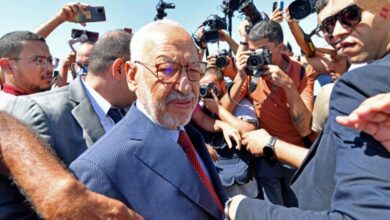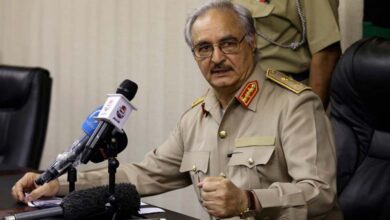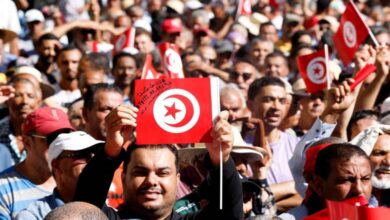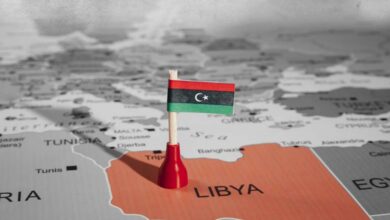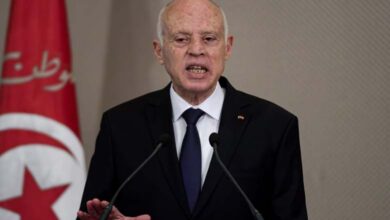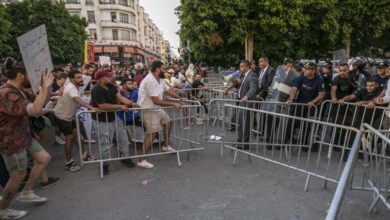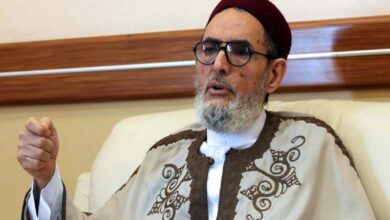Chaos Strikes Algerian Media: Exaggerated Propaganda for Tebboune Involves a Daily Newspaper
The Algerian authorities control the media with laws and directives to keep them within their sphere, but they have failed to develop a well-thought-out media strategy that would allow aligned platforms to follow the desired path.
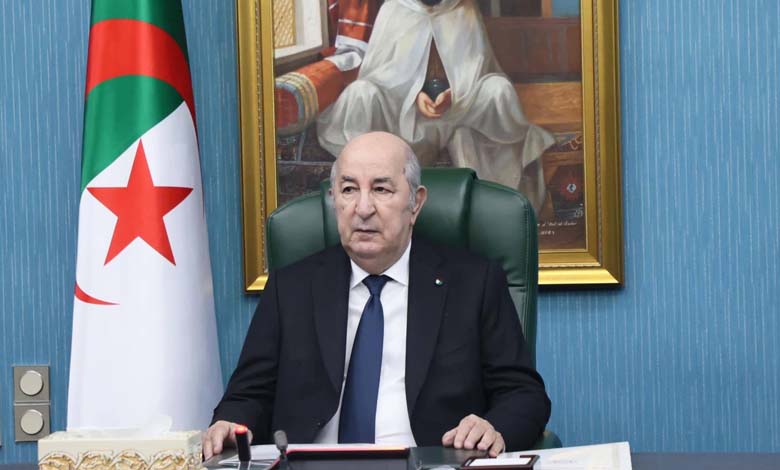
The Algerian authorities are preparing to shut down the newspaper “Algeria Tomorrow,” which was founded in 2020 after the election of President Abdelmadjid Tebboune in the 2019 elections, where he promised to establish a “new Algeria” with broader freedoms, including freedom of expression. It was based on these promises that the newspaper was founded, promising in turn a new media landscape.
-
Tebboune Distances Himself from Attempt to Maghreb Union
-
Sinwar flirts with Nasrallah with a ‘rare’ message: Objectives and timing mystery
In a move that some observers of the Algerian media landscape considered part of the chaos plaguing the sector, Algeria’s Ministry of Communication announced on Thursday the suspension of the printing of the daily “Algeria Tomorrow” due to the publication of content containing “misleading, undocumented, and unverified information contrary to the regulations governing journalistic work,” without specifying the details of the article that angered the authorities.
The newspaper had published a report titled “Are the Zionists and the Axis of Evil Planning to Assassinate President Tebboune?” It quoted what it described as a “well-informed source” saying that “the president is indeed under threat of assassination at any time by evil forces.”
-
More than half of French people consider Algeria a terrorist threat
-
The Maghreb Union tests the sincerity of Algeria’s intentions towards resolving the dispute with Morocco
Journalists have noted that the Algerian newspaper, which hasn’t lasted long, pushed government propaganda to the extreme, to the point of becoming entangled in political issues by fabricating baseless plots and stories.
The newspaper also appears to have adhered to conspiracy theories often promoted by the regime since 2019, with warnings about terrorist plans targeting Hirak protesters’ gatherings, to stories about conspiracies orchestrated by the separatist “MAK” movement, which the regime claims is supported by foreign powers, as well as other tales of foreign plots targeting Algeria’s security and stability.
-
Algeria pursues ineffectively Morocco’s expansion into distant geographical spaces
-
Macron will definitely not apologize to Algeria for years of colonialism
An analysis of the Algerian media landscape shows that the suspension of the Algerian newspaper’s printing, which is expected to precede its closure, is part of a campaign of intimidation exercised by the authorities under the guise of respecting the law, in order to subdue the media, especially those not aligned with the government line. The ministry’s decision seems to be part of a restructuring of the media sector aimed at aligning it with the narrative that the regime wants to promote, and the measures taken against “Algeria Tomorrow” are more a warning to other media outlets than mere enforcement of the law.
-
An Algerian-Iranian rapprochement on the verge of discord and tensions with Morocco
-
Algiers Arab Summit – Preparations Completed
In a statement, the ministry clarified that “in accordance with Article 80 of Law No. 23-19 on written and electronic press, the ministry’s services summoned the director of publication of Algeria Tomorrow, Adil Zakari, and Issam Sheikh, founder and executive director, on Thursday to question them regarding the dossier published in issue No. 10 of the newspaper, dated September 19, 2024, authored by Ammar Qardoud, founder and general director of the publication, for publishing misleading, undocumented information contrary to the provisions of Organic Law No. 23-14 on information, particularly Articles 3, 20, and 35, and Law No. 23-19 on written and electronic press.”
-
Polisario Leader Returns to Algeria after Spain-Morocco Row
-
Increase of tensions between Algeria and Turkey
The statement added: “On this basis, the ministry decided to immediately suspend the printing of the mentioned publication and initiate legal procedures for its permanent closure in accordance with Article 54 of the Constitution and Article 70 of the law on written and electronic press.”
Algerian journalists reported that the front page of “Algeria Tomorrow” showed a picture of President Abdelmadjid Tebboune with shocking headlines widely circulated on social media, mentioning, “Are the Zionists and the Axis of Evil Planning to Assassinate President Tebboune?” The article referenced an operation named (Star Six) already mentioned by another newspaper, “Le Soir d’Algérie,” during the presidential campaign, claiming the existence of a plot orchestrated by hostile forces in the Arab and regional world against Algeria.
-
Algeria gas explosion…At least five killed and 16 wounded
-
How Did the Killing of an Algerian Teen Spark Violence in France?
Algerian journalist Najib Belhamer wrote on his Facebook page, in a post titled “Message and Lesson,” that “the headline aligned with the narrative promoted during the election campaign, and more famous newspapers than ‘Algeria Tomorrow’ had published articles without verified information about a plot named Star Six involving countries from the Axis of Evil, with pictures of the leaders of those countries on the front page.”
He added: “Algeria Tomorrow didn’t invent anything new and didn’t overstep the boundaries already drawn, but it acted at the wrong time, when the regime needed to send signals that the situation had changed. And because it came at the wrong time, it became just a quickly forgotten signal once the message was received.”
-
This punishment for those who disturb the Algerian elections… Details
-
Algeria: Quiet has been restored in two Algerian cities
Observers believe that the Algerian authorities, which control the media through laws and directives to keep them in check, and use propaganda, especially during presidential elections, have failed to develop a well-thought-out media strategy allowing aligned media to follow a coherent path. This has led to the spread of rumors and false information, which could drag the government into diplomatic crises with concerned countries.
The media sector in Algeria is in chaos, with the chaotic management of the communication sector, where some accuse the Algerian military of controlling all the state’s machinery, leading to arbitrary and ill-conceived decisions.
-
Morocco Urges Algeria to Engage in Peace Rather than Chasing Illusions
-
More than half of French people consider Algeria a terrorist threat
Recent developments have revealed the failure of the country’s media strategy and its confusion, as evidenced by the recent dismissal of interim general director of Algerian television, Adil Salaqji, the third person to hold this position within two months, illustrating the instability plaguing the Algerian public television. Since 2019, five general directors have held this position.
Sources indicate that this decision is related to the broadcasting by Algerian television of scenes showing President Abdelmadjid Tebboune entering his office at the presidential palace, before being “grabbed” by his chief of staff, Boualem Boualem, in a manner that reflects his influence and power. This unprecedented gesture revealed Boualem’s strength, perceived as the generals’ eye within the presidential palace.
-
Spanish security unveils Polisario’s ties to a human trafficking and smuggling network
-
Al-Burhan seeks support in Algeria after the failure of his external tours
These dismissal decisions contradict the electoral promises of an opening to freedom of expression and journalistic practice, while justifications are always ready to restrict the freedom of expression of dissident voices on issues that embarrass the power.
Algerians wonder what the purpose of these recurring administrative changes is, as there has been no tangible improvement that truly benefits the country and its citizens. Observers believe that these dismissals do not change the current situation of the country: no change, no progress, despite the enormous sums of money spent by the state. Some have even ironically commented on social media, stating that the end of these missions only perpetuates the previous corruption.


